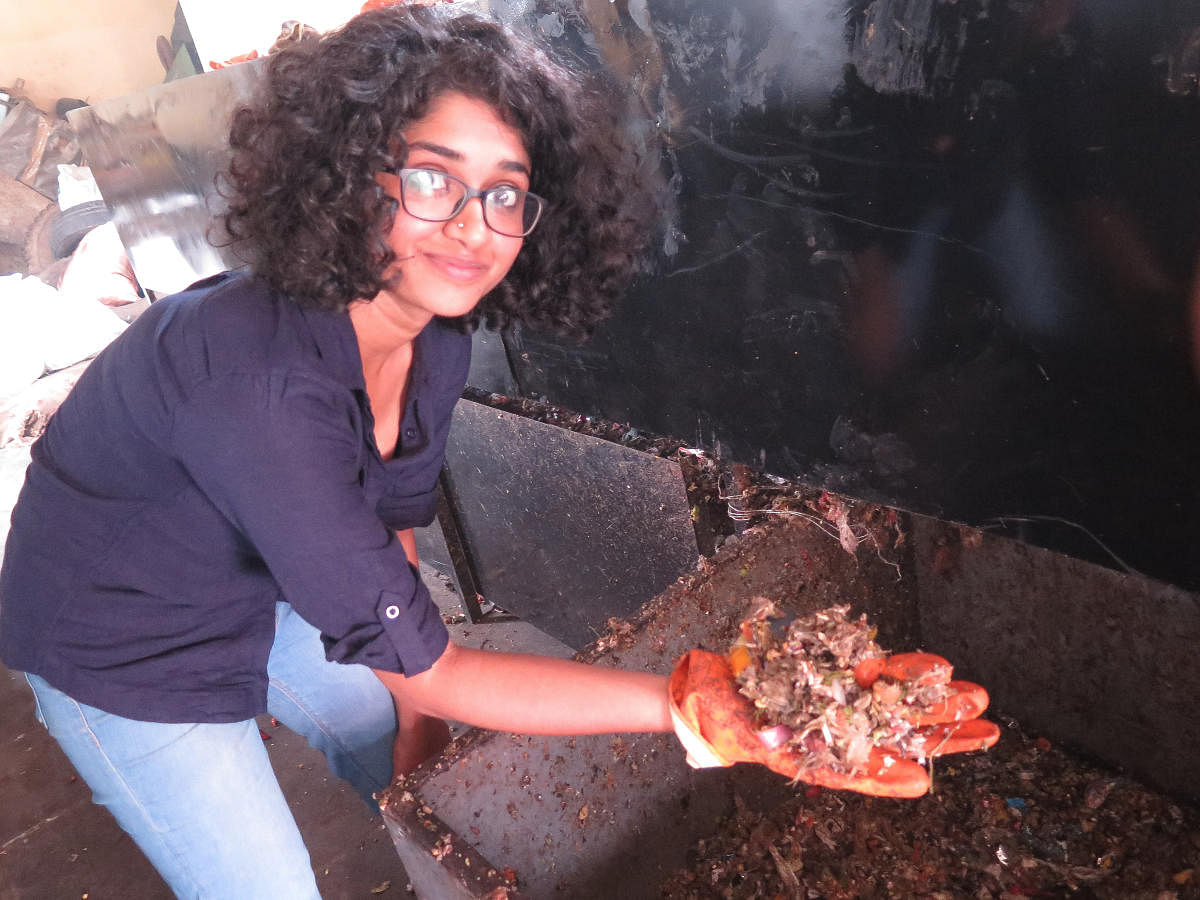A rising dilemma over Bengaluru's mounting trash



As flocks of scavenging black kites circle over mounds of trash dumped in an open drainage canal next to the BBMP’s waste collection centre in Basavanagudi, 23-year-old Nivedha R M, a graduate of R V Engineering College, shows off her invention -- TrashBot, a 20-foot-long waste-segregating machine which she says can help win Bengaluru’s battle with trash.
The city grapples with at least 2,500 tons of unsegregated waste per day. But the Bruhat Bengaluru Mahanagara Palike (BBMP), the waste management industry and this young entrepreneur find themselves at odds on how to approach the crisis.
The machine is box-like, with a pronounced arch. When the operator presses a series of light-illuminated buttons, it gets to work with a roar.
“That collective sound is the noise of the magnetic drive which separates metals, the shredder which tears plastics and other non-biodegradable materials into small pieces and the air blower which separates the plastics from organic waste matter such as food,” Nivedha explains.
According to data published by the Centre for Science and Environment last year, only about 50-55% of the city’s waste is being segregated at source as biodegradable (food and organic waste) and non-biodegradable (plastics and metals).
However, according to a senior official at a privately-run waste management company, no one really knows how much waste is being segregated because of the lack of data.
“The actual number is closer to 25%,” Nivedha points out, adding that her TrashBot could deal with the remaining 75%.
“The Palike favoured waste-to-energy plants as proposed by 3Wayste, a French company, over other bids, because 3Wayste did not require an initial financial investment,” D Randeep, additional director of the BBMP’s Solid Waste Management wing tells DH.
Critics within the BBMP and the waste industry, meanwhile, expressed concern that the TrashBot would reinforce the reluctance of many to segregate. “Segregation of waste at the source is mandated by the law, and this new technology can be seen as encouraging people not to segregate,” Randeep notes.
Nivedha shrugged off the criticism saying the reality is a majority of people are not segregating waste. “What we are trying is to solve the problem. In an ideal world, where everyone segregated their garbage, TrashBot would not be needed. But we do not live in an ideal world,” she adds.
A five-ton version of the TrashBot has been active at the Adani Port in Gujarat for the last four months. According to Nivedha, the waste segregated from the machine is used in two ways – organic waste is turned into manure while plastics are turned into four by eight-foot boards as an alternative to fibreboards used in the furniture industry.
A 5-tonne version of TrashBot has been active at the Adani Port in Gujarat for the last four months. According to Nivedha, the waste segregated from the machine is used in two ways – the organic waste is turned into manure while plastics are turned into four by eight-foot boards as an alternative to fibreboards used in the furniture industry.
Bengaluru's score: 49/100
According to a 2018 study published by the Centre for Science and Environment, Bengaluru scored 49 points out of 100 for its solid waste management. The city’s rating across seven parameters was as follows:
♦ Segregation of waste: 50-55%
♦ Door-to-Door collection of trash: 90%
♦ Transportation of garbage: 75%
♦ Wet-Waste Processing: 75%
♦ Dry-Waste Processing: under 33%
♦ Decentralised processing: Under 33%
♦ Effective disposal of garbage: 50%
Deccan Herald is on WhatsApp Channels| Join now for Breaking News & Editor's Picks